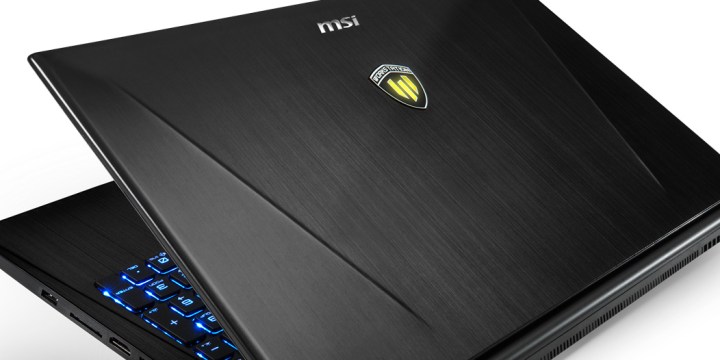
MSI currently lists five gaming laptops that are optimized for the HTC Vive: the GT725 6QF Dominator Pro G 29th Anniversary Edition, the GT725 6QF Dragon Edition G 29th Anniversary Edition, the GT725 6QF Dominator Pro G Heroes Special Edition, the GT80S 6QF Titan SLI 29th Anniversary Edition, and the GT80S 6QF Titan SLI Heroes Special Edition. The first three feature discrete Nvidia GeForce GTX 980 GPUs, while the latter two have discrete GTX 980 GPUs in SLI mode.
For example, the GT725 6QF Dominator Pro G 29th Anniversary Edition comes packed with a sixth-generation Intel Core i7 processor, up to 64GB of DDR4-2133 memory, 8GB of GDDR5 video memory dedicated to the GPU, a 17.3-inch screen with Full HD or UHD resolutions, optional G-SYNC technology, a Blu-ray writer, a 2.5-inch hard drive, and built-in speakers and a woofer provided by Dynaudio. Other features include Wireless AC and Bluetooth 4.1 connectivity, a USB 3.1 Type-C port, Thunderbolt 3 support, and more.
To give you an idea of what the HTC Vive requires, the minimum system specs include an Intel Core i5-4590, AMD FX 8350, or equivalent CPU; a Nvidia GeForce GTX 970, AMD Radeon R9 290, or equivalent GPU; 4GB of memory, one USB 2.0 port, HDMI 1.4 or DisplayPort 1.2 output, and Windows 7 SP1. Naturally, the better the hardware, the better the performance. The headset works well on Windows 8.1 and Windows 10, too.
Related: Get your hardware game ready, check out more from MSI here
On the Intel front, MSI offers several Intel-certified, VR-ready gaming notebooks, too. There are just two listed on Intel’s website: the GT725 Dominator Pro costing a hefty $3,100 and the MSI Workstation WT72 costing a heftier $5,000. Both come with Nvidia-based GPUs — the GeForce GTX 980 and the Quadro M5000M, respectively.
If you’re curious about the more expensive workstation, this beast has a 17.3-inch screen with a 1,920 x 1,080 resolution, a massive 32GB of DDR4-2133 memory, a quad-core Intel Xeon processor clocked at 2.8GHz, 1,256GB of storage spread across a hard drive and SSD, and a DVD drive. Other features include an SD card reader, Wireless AC and Bluetooth connectivity, Windows 10 Professional, and loads more.
“MSI believes that VR can change the way of gaming and will certainly play an important role in the future,” the company said on its blog on Tuesday. ‘As a market leader, MSI welcomes and encourages innovators to participate in the development process and to work together to further perfect this technology.”
Developers and manufacturers interested in jumping on board with MSI to move VR forward can head here to join its cooperation program.
Editors' Recommendations
- I streamlined my PC VR setup, and now I use it more than ever
- HTC’s leaked Vive Flow headset might offer portable VR
- How to watch HTC’s ViveCon today, the ‘most important VR event of the year’
- How to build a cheap VR-ready PC
- The best VR-ready laptops you can buy right now



